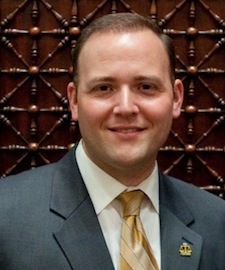 About 15% of US homes get their water from a private company, but Rockland isn’t your typical American county: about 90% of Rockland residents get their water from United Water New York, a division of the French company Suez Environnement. Fried says if elected, he would appoint a panel to explore why Rockland doesn’t have its own water district. “The waters of New York belong to the people and are held in trust for us by the government,” said Fried. “United Water owns reservoirs, pipes, and pumps, but they do not own the water. Decision makers outside of Rockland make choices about our water while Rockland has a limited role.”
About 15% of US homes get their water from a private company, but Rockland isn’t your typical American county: about 90% of Rockland residents get their water from United Water New York, a division of the French company Suez Environnement. Fried says if elected, he would appoint a panel to explore why Rockland doesn’t have its own water district. “The waters of New York belong to the people and are held in trust for us by the government,” said Fried. “United Water owns reservoirs, pipes, and pumps, but they do not own the water. Decision makers outside of Rockland make choices about our water while Rockland has a limited role.”
“Water Conservation and Long-Term Water Supply Planning in The Hudson Valley: A Rockland County Case Study,” a white paper from the Center For Research, Regional Education And Outreach at SUNY New Paltz, noted that Rockland is unique among lower Hudson Valley counties because it isn’t part of the New York City water management system. Authors Stuart Braman and Simon Gruber say that because local and state approvals are required, Rockland’s arrangement makes it difficult to implement an integrated water management policy. “At the local level, water sale and delivery is disconnected from the authority to regulate its use. At the state level, because private water companies are utilities regulated by the Public Service Commission, an additional actor is brought powerfully into the picture.”
‘€œRockland will always face powerful interests far beyond its borders,” said Fried. “It is time for county government to protect our water and our wallets.’€ said Fried.
Fried has also proposed consolidating all water functions into one county office, bringing together the Health Department’s Division of Environmental Health, the Drainage Agency, the Water Supply Bureau, Water Quality Management, the Water Board, and the Soil & Water Conservation District to reduce expenses and put much of the county’s water expertise under one roof.
Even if Rockland were to form a new water district after the November election, it’s would be too late to weigh in regarding United Water’s controversial proposal to build a desalination plant in Haverstraw. “We don’t have as strong a voice on desalination because the state is taking the lead and we aren’t handling it locally,” said Fried Campaign Director Stephen Papas. “Rockland wasn’t the lead agency on investigating the environmental impacts.” Because of continuing budget cuts to the NYS Department of Environmental Conservation and the Public Service Commission, Papas says Rockland’s water issues are being handled by agencies that are short staffed.
Braman’ and Gruber’s white paper suggests a role for a future Rockland water district which doesn’t currently exist: being an advocate for conservation and creating an economic motivation which gets United Water on board. “Water supply is financed through fees: less water supplied means less revenue,” said Braman and Gruber. “Public suppliers, not regulated by the PSC, have little incentive to promote water conservation unless it is accompanied by an increase in water rates.” A possible role for a future water district might be to find a way to meet consumer demand through conservation while rewarding Rockland’s water supplier for being a partner in a approach which works for both United Water and their customers.
See also: Water Conservation and Long-Term Water Supply Planning in The Hudson Valley: A Rockland County Case Study, Braman and Gruber, The Center For Research, Regional Education And Outreach at SUNY New Paltz, August 2012








